Glamazons,
Living in New York City, you have access to so much incredible art from musicals, to live concerts, to plays. It’s one of the things that originally drew me to the city from my small town in New Jersey. As a kid, my Dad would take me on the NJ Transit train into New York City to see Broadway plays, and I fell in love with them; today, we keep the tradition going and together, we’ve seen some amazing works like August Wilson‘s “Gem of the Ocean.”
Revered late playwright August Wilson
That play was one of the best I’ve ever seen. I remember being so connected to the characters, the rhythm of the language they used that celebrated Southern vernacular and incredible performances by actresses like Phylicia Rashad.
A still from “Gem of the Ocean”
I never imagined that one day I’d be sitting across from Phylicia, as she discussed that very same play, at an event that served as a tribute to August Wilson. But there I was, Sunday, at The Jerome L. Greene Performance Space in downtown Manhattan, watching a live panel about one of my favorite playwrights of all time.
The event marked the launch of “August Wilson American Century Cycle,” in which live dramatic readings of all 10 plays from the series (listed below) will be recorded at The Jerome L. Greene Performance Space on WNYC and WQXR. They’ll also be available as live video web casts on the NYPR website.
To celebrate the launch, the signature sponsor, Lincoln Motor Company, invited me downtown to hear a discussion about the work.
Phylicia Rashad speaking on August Wilson’s plays
Here are a few excerpts:
Phylicia Rashad on her favorite August Wilson play:
“I love ‘Gem of the Ocean.’ I think in ‘Gem of the Ocean,’ August wrote what no one ever wrote. When he gave us Aunt Esther, there’s never been a personality like hers in all of theatrical history. Someone who lived so purposefully, who held the memory of everything that went before, who could see so deeply into people, who understood the nature of God, who lived in that understanding all the time, and yet was so accessible. Once you play Aunt Esther (pauses)…I was ready to quit [acting] because I said there wasn’t anything else to do!
Aunt Esther is one aspect of it, but I’ll tell you another reason I love this play so much. Sitting in Aunt Esther’s room, waiting for her to make her entrance in one portion of the play, there’s a scene where Solly and Eli are mentoring Citizen. They’re telling him about the Civil War and having taken people to freedom. I’m listening to this every single night and I love listening to this dialogue. But one night, the words disappeared and I was listening to talking drums. And each character had a different cadence, a different rhythm, a different sound. And the sound engulfed me.”
On the importance of sound in these plays and how it will translate for radio:
Phylicia Rashad: “Through the sound, he captured the people. As actors, when we approach his characters, there’s only one way to do justice by accessing the character. And that’s through the sound. That’s what’s so miraculous about this endeavor. This will capture the sound. The pure essence of what he gave us.”
Ruben Santiago-Hudson, Tony Award-winning actor and director and artistic director of “August Wilson American Century Cycle”: “If you go to the blues, you will hear the history. […] There are people who have the spirit for it, but don’t have the sound. And now they can access the sound. You know what it sounds like when a Northern colored person says something. If you really think about it, it’s not speed. It’s rhythm. It’s music. That’s the way we communicate. Look at our President. He can rap.”
Marion McClinton, “August Wilson American Century Cycle” Collaborator: “Many of my students are terrified of this work. And then, once they find their way through the rhythm and music of it, they locate a place — a cellular memory in them — that erases whatever been’s missing from them. And they own a part of themselves as human beings as well as artists, and dignity shows up on a whole different level.”
—
That’s so awesome! Ironically, I’ve been paying attention recently to the rhythm in the way people speak and it’s fascinating how it differs from Harlem to Brooklyn to New Jersey to Atlanta to New Orleans. It takes a talented writer to be able to capture those nuances in a play but that’s what makes the art authentic, right? (Sidenote: That’s also why I love Zora Neale Hurston, who brilliantly captured Southern dialect in “Their Eyes Were Watching God.”)
If you haven’t had the pleasure of seeing sound, history and art converge in one of August Wilson‘s plays, you’re in luck. You can tune into WNYC and WQXR and log on to NYPR website for dramatic readings and live video web casts of the 10 following plays:
1900s Gem of the Ocean – 1839 Wylie Avenue, 1904
1910s Joe Turner’s Come and Gone – a boardinghouse, 1911
1920s Ma Rainey’s Black Bottom – a band room and studio in Chicago, Illinois, 1927
1930s The Piano Lesson – a home with an heirloom upright piano, 1936
1940s Seven Guitars – the backyard of a brick home with a cellar and window, 1948
1950s Fences – an urban neighborhood in an industrial city, 1957
1960s Two Trains Running – a restaurant across from a funeral home and a meat market, 1969
1970s Jitney – a neighborhood gypsy taxicab station, 1977
1980s King Hedley II – the backyard of two tenement homes, 1985
1990s Radio Golf – a real estate office, 1997
So exciting!
August Wilson‘s widow, Constanza Romero, had this to say about the collaboration:
“The August Wilson Estate is thrilled to partner with The Greene Space on this historical undertaking. Back in 1985, the cast recording of Ma Rainey’s Black Bottom received a Grammy Award. This was a meaningful moment for August, and I know he would be deeply moved that now his entire cycle is being recorded. When Indira approached me with this idea, it was truly a meeting of the minds. This is something I have been hoping for—a chance to transfer a theatrical experience which is usually ephemeral, to a medium that will preserve it for history. And this will happen with August’s American Century Cycle in the hands of many talented theatre artists who knew and worked with him. I think we all see this as a unique opportunity to keep his legacy alive-and-well for generations to come.”
Check out more pictures from the event:
Yours truly posing on the red carpet
L to R: Kenny Leon, Director; Indira Etwaroo, Executive Producer of The Greene Space; actor and playwright Ruben Santiago-Hudson; actress Phylicia Rashad; Marion McClinton, August Wilson American Century Cycle Collaborator; and actor Stephen McKinley Henderson with the beautiful Lincoln MKZ
Indira Etwaroo, Kenny Leon, Ruben Santiago-Hudson, Phylicia Rashad, Marion McClinton, Stephen McKinley Henderson and Eric Rouse of Lincoln Motor Company with the Lincoln MKZ
The packed audience inside The Jerome L. Greene Performance Space
The musical opening to the evening included drums, a beautiful solo and a tribute to our ancestors.
Phylicia Rashad speaking about the importance of August Wilson American Century Cycle as an incredible journey through a century of plays portraying the 20th century African-American experience.
Such an amazing evening! Will you tune into August Wilson American Century Cycle when it launches, Glamazons? Click here for more information on the project.
And special thanks to Lincoln Motor Company for inviting me.
Kisses,
Glamazon Jessica
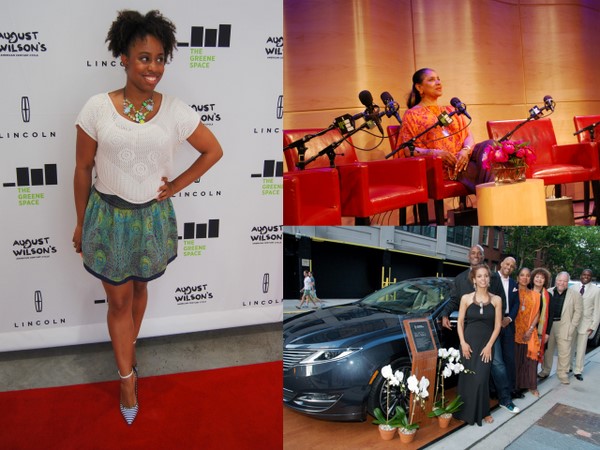



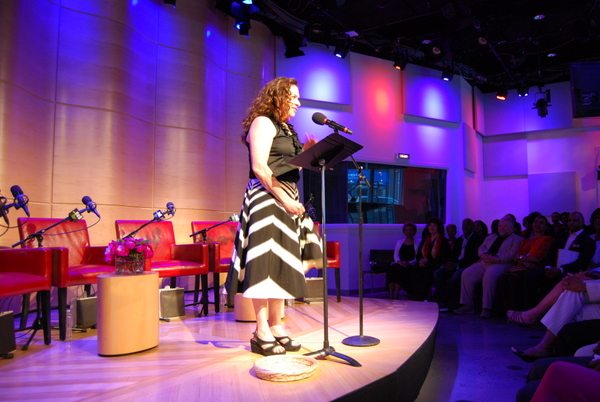
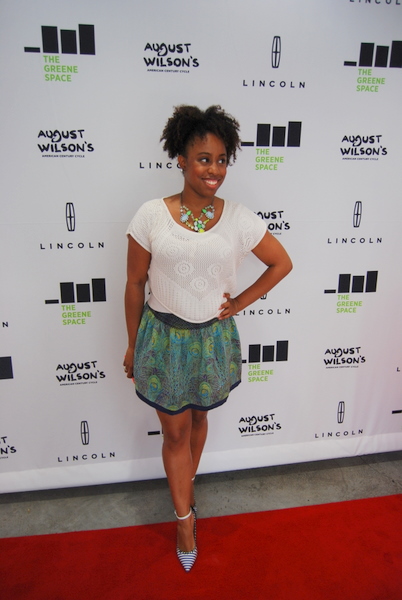
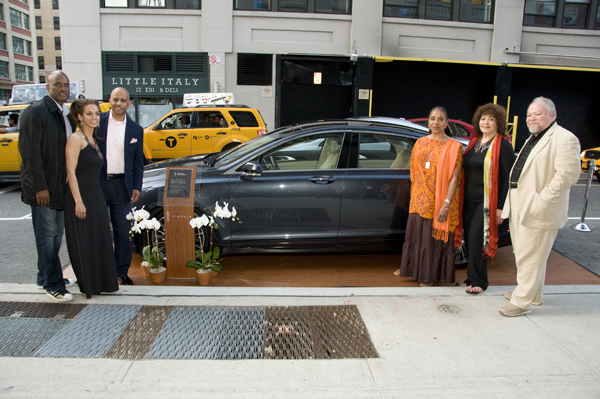
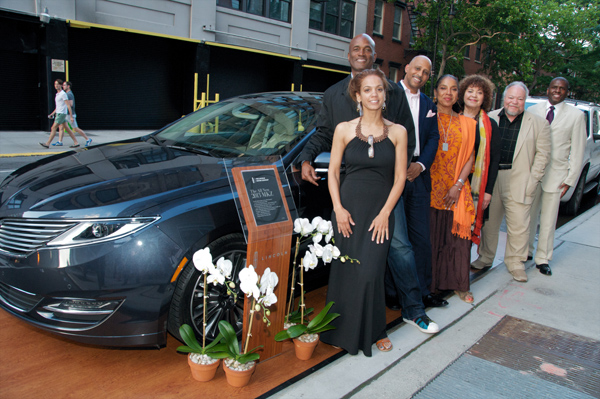

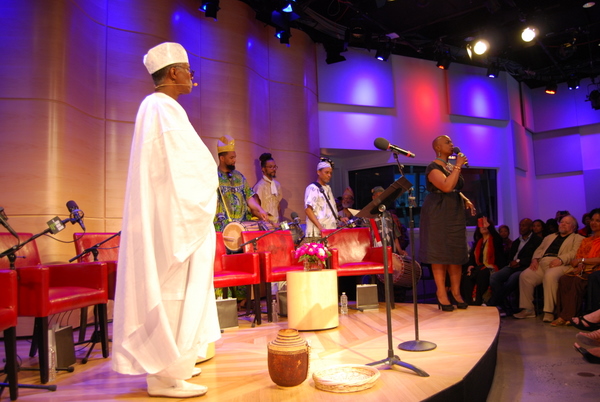
I love August Wilson !!! I named my son last year after him.
Author
Aww what a beautiful tribute to August. Love him too! x